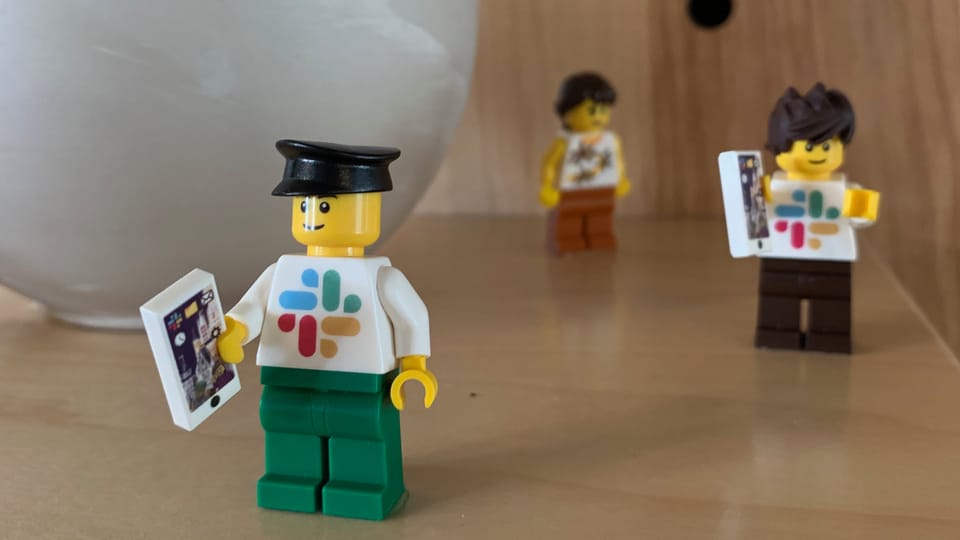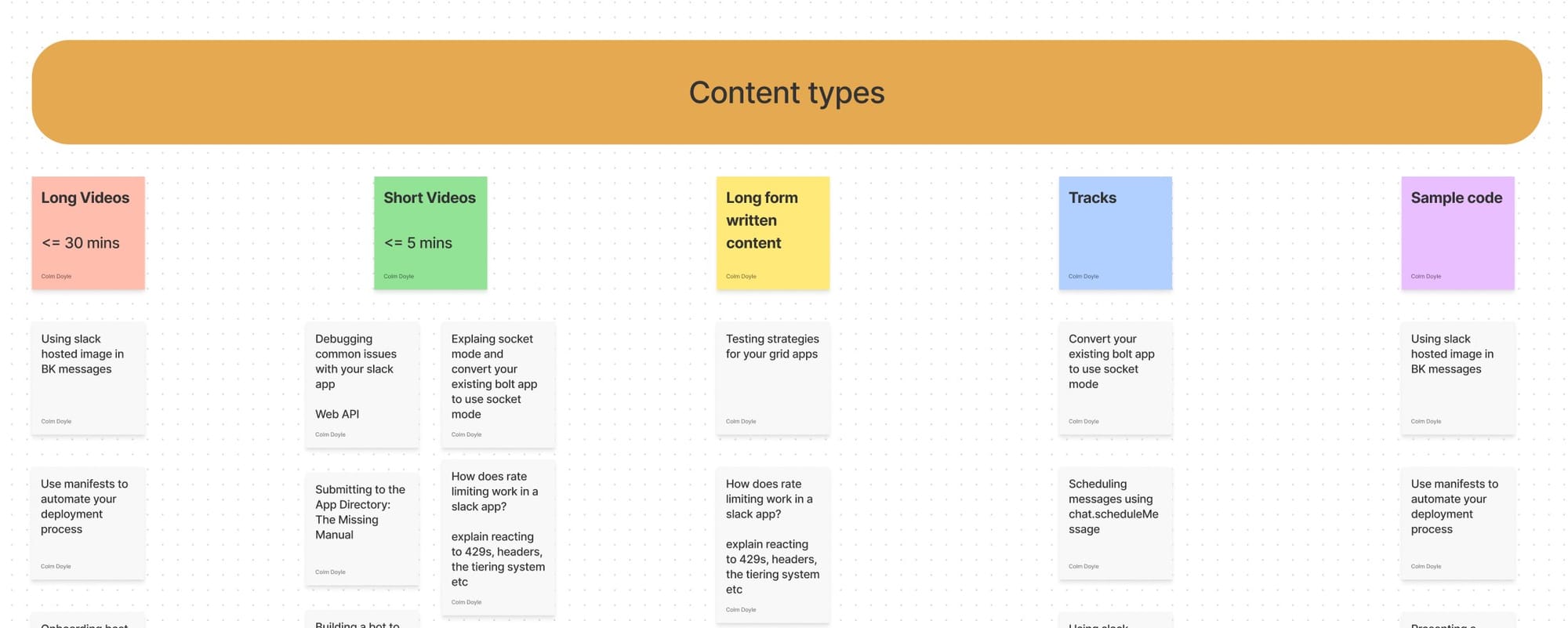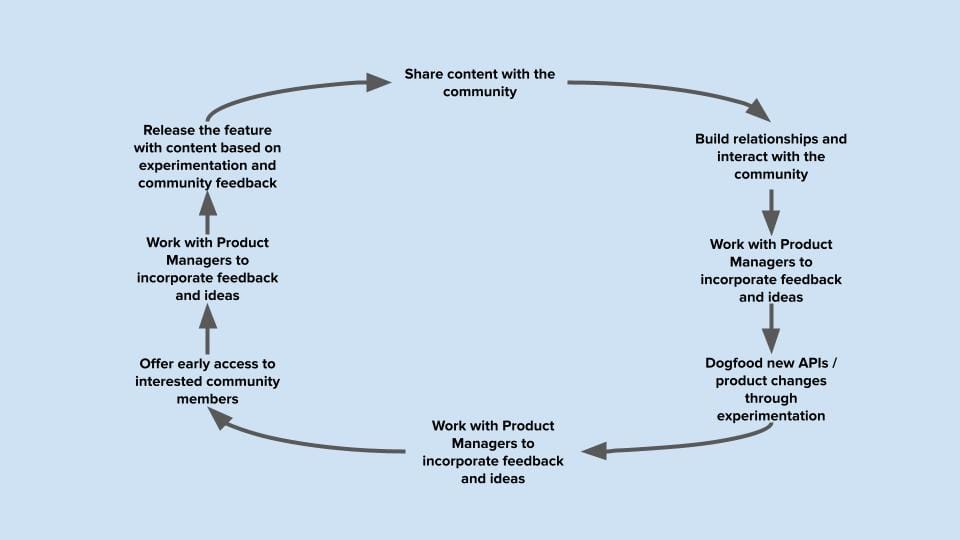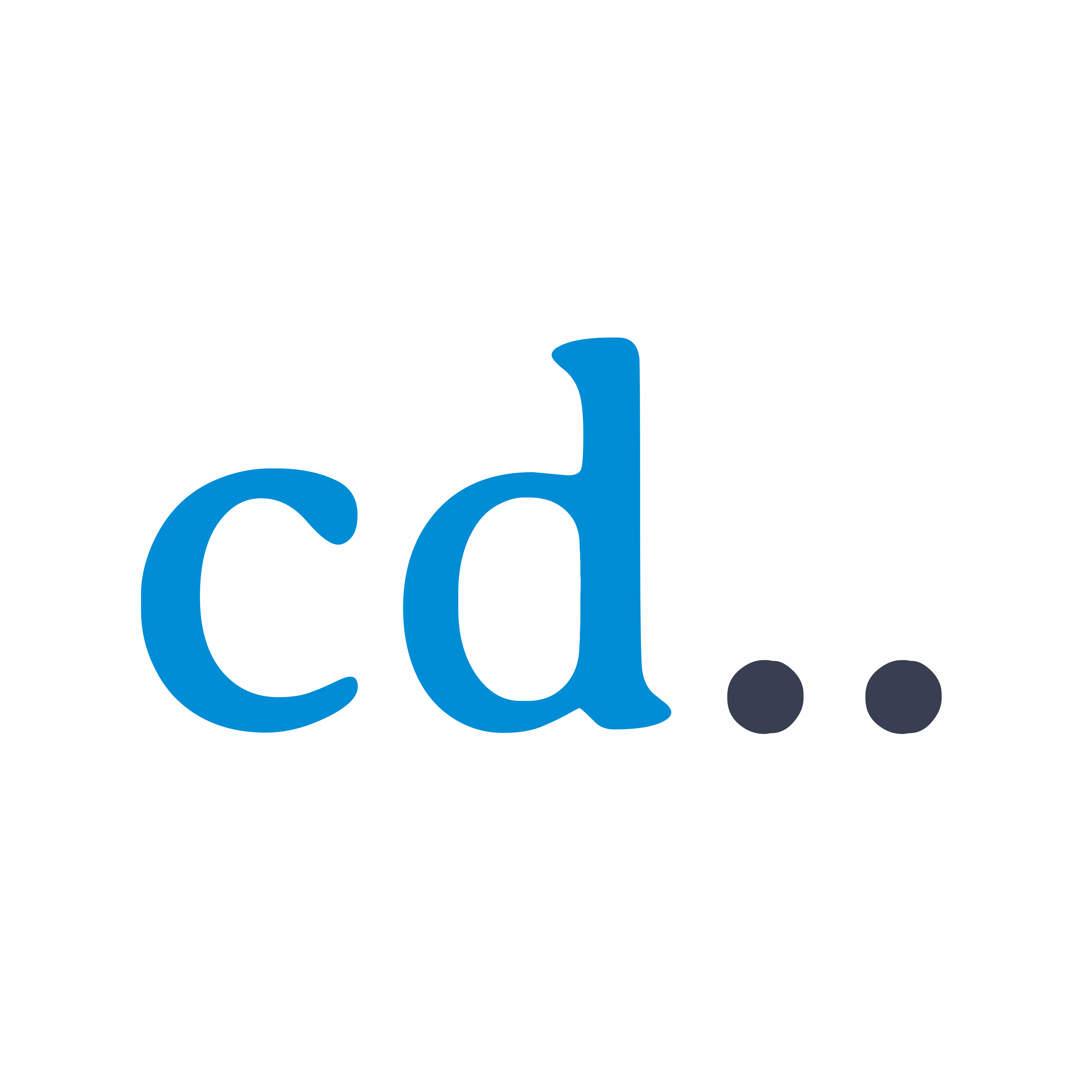Developer Relations in 2022 - Where I'm focusing

Like many SaaS companies, the planning year at Slack runs from February to January, so we’re coming to the end of our planning process for the next 12 months.
One part of that process which is important in my role as Head of Developer Advocacy at Slack is recruiting and headcount planning. I need to make an ask for a specific number of hires, justify that, start working with recruiting to hire those people, etc etc.
As part of that, I’ve been thinking a lot about what it is that I want the team to achieve.
Obviously I need to consider what we’re doing through the lens of the company, but like any good leader, I try to consider what each individual on my team will get out of it. What skills will they learn to advance in their career, what will be transferable to other roles, other teams and more.
I think these skills could serve as a good blueprint for many small DevRel teams, so wanted to share them.
So with that, let me talk about what Slack’s Developer Advocates will be doing this year.
It’s all about the content
A big focus for us next year is massively upping our content game. More video, more blog posts, maybe some other mediums we haven’t considered yet.
Towards the latter half of 2021, we started to spin up what we’d consider mid-length videos, that is longer than 5 minutes, but less than 15.
Here’s a great example by Sandra, the most recent member of the team, who was speaking about using our App Home feature.
Then there’s also blog posts like this one from Jim Ray.
Whilst both of those example are very “you already know and have bought into the idea of Slack”, we also want to start producing content which is more reflective of our amazing community of developers. At the end of the day, our platform exists to help people get things done more easily in Slack, whether that’s responding to incidents, managing their projects, or most importantly bragging about your wordle score, so we want to talk about the interesting things that our community are making, and even things that aren’t related to our APIs, but can still make your life easier, like offering a look at how we plan content, or build product, or launch features.
Here’s just a few of the things we want to tackle soon.

Once more unto the in-person events, dear friends
I still think 2022 will be very heavy on digital content, but like other organisations, we’re keeping a close eye on what a return to in-person looks like, so there’ll likely be some hybrid events too.
We already have at least one major event on the books in the form of TrailblazerDX 2022 this April, but as with everything, it will depend on COVID-19 and how safely we can run an event at the multiple thousands scale.
As I say though, I don’t know that any large event will ever be 100% in-person again. Hybrid is here to stay.
One message, many mediums
But fundamentally, COVID or otherwise, I think DevRel is a multimedia discipline now, so DevRel teams should have experience / an interest in generating content across all sorts of mediums.
There are so many ways to help your community, and make your content accessible to a wide range of folks, regardless of where they’re based, or their style of learning. We’re not there yet, but we want to be a team that generates content for our whole community.
In a practical sense, I think that knowledge of how to produce content in multiple formats is a table stakes skill for a DevRel professional today. You don’t have to be a world class video editor, but the idea of learning to slice together some video content in iMovie/Premiere Pro etc shouldn’t terrify you. The same can be said of audio. Voiceovers, podcasts, virtual workshops all require you to be confident speaking into a microphone.
Similarly, you need to be confident in your writing. Blog posts, tutorials, even tweets. The written word is still important, no matter how much video or audio you pump out.
I think what’s going to be interesting is how much we could leverage short form video for technical content. If you look at the success other industries are having with the likes of Instagram Reels, YouTube Shorts and TikTok, I can’t believe that it’s not going to be a useful way to get developer facing content to a new audience.
For some examples of folks who I think are doing this well, I always look at what GitHub and Stripe are doing. Michelle Mannering, BDougie and Chris Trag in particular from those teams are doing great stuff.
Staying close to the product
In a post last year, Getting better at Developer Relations, I spoke about the importance of being Developer Zero and working closely with Product Managers. I definitely still believe that to be true, and I’ve started to think more about how our team should balance that work with the content creation work.

When I do, I envisage it as a circular thing, because each part of a Developer Advocate’s job is wholly dependent on the other. You cannot create value for your community if you’re not pushing your product team to build things that solve their problems, and you cannot get valuable feedback to bring to your product team if you’re not sharing ideas, sharing information and ultimately building a relationship with your community.
If you’re only ever pitching your product, then congratulations, you work in Sales and Marketing, and I wish you well.
If you’re only ever having interesting technical conversations with people that don’t teach you more about how people use your platform, then congratulations, you’re a well funded distinguished engineer, and I wish you well.
Developer Relations / Advocacy sits somewhere in the messy middle. We are neither engineers who talk in the abstract and write fancy algorithms all day, nor are we marketing/sales people. You need to be comfortable living in that grey area.
At Slack, Developer Relations sits inside the Product Organisation, alongside the Platform Product Managers, so it’s easy for us to build and maintain these relationships with them. Wherever your team sits though, you should put in the effort, as PMs are one of the most important partners you have.
Always tighten the feedback loop
So what is 2022 at Slack Developer Advocacy? It’s about iterating on the loop I mention above, making it faster. Ship more content, ship better content, ship platform improvements, ship ever increasing value for our community, because ultimately, it’s them we’re here to serve, not the other way around.
If you’re as passionate about these things as I am, and want to join us, I’m always looking to talk with great people. As I write this post, I’m actively looking for people in Europe, and hope to soon be looking for people in North America. So drop me a DM on twitter, and let’s talk.
